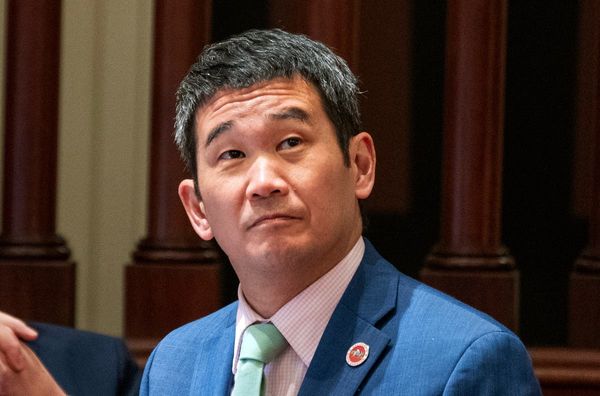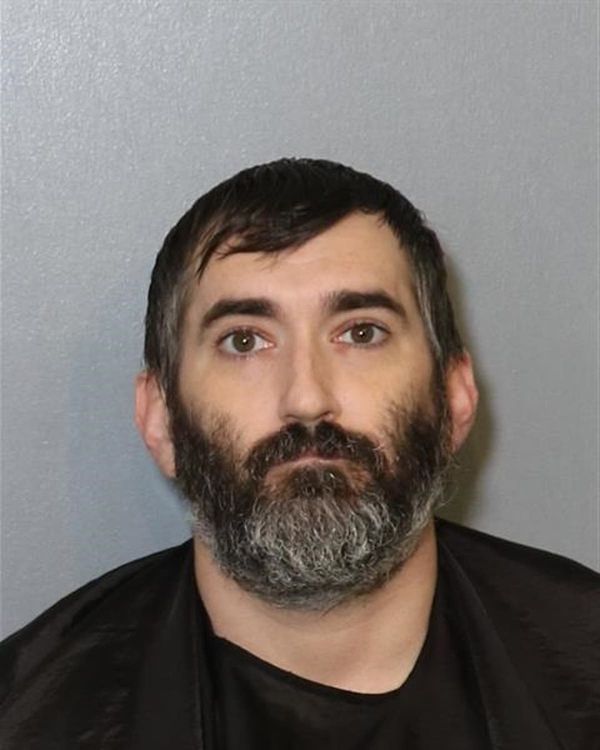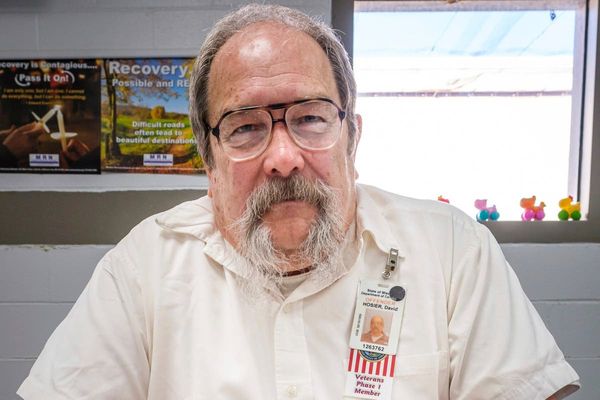
Documentary presenters don’t usually make a virtue out of bewilderment, but these are confounding, confusing times. Chris Packham: Is It Time to Break the Law? – an extraordinary, anguished think piece – opens with an audio montage of Packham’s desperate thoughts about the climate crisis, arranged so they chaotically overlap. This chattering inner monologue is accompanied by the unforgettable sight of the presenter’s face slowly being smothered in thick, black crude oil.
OK, the “oil” is probably treacle, but Packham’s film does involve the idea of putting his own safety and future on the line. It is beyond merely thought provoking: it follows him as he deals with a profound dilemma about how to live his life, and what that life is for, and it tells us that this is a decision we at home must also now make. The climate apocalypse is here and, despite fires and floods around the world, there is still – maddeningly – little sign of the change needed to avert the deeper catastrophe that is coming. Voting hasn’t worked. Peaceful protest hasn’t worked. Rational debate hasn’t worked. What now?
The problem is crystallised by a chat with John Gummer, Lord Deben. He chaired the government’s Climate Change Committee and co-authored a report that slammed Britain’s green initiatives as dangerously inadequate: “We should be on a war footing,” he tells Packham, noting that a 1C rise in global temperatures is already causing mayhem, and we are headed for 2C or 3C. But when asked about radical protests, Gummer bristles, warning against “counter-productive” action and insisting, “We have to have the rule of law.”
Packham, however, is deeply sympathetic towards the ordinary people who have become some of Britain’s most hardline climate activists, via actions organised by the guerrilla pressure group Just Stop Oil. The threat of arrest and imprisonment does not put them off their attempt to safeguard humanity’s future. Packham approves, commentating in impressed tones as a dozen or so concerned folk cause bedlam in London with a slow-walk protest, then shows off that he’s pals with Just Stop Oil, by being invited to watch two of their members daub orange paint on the offices of the controversial “thinktank” Policy Exchange.
Visiting another Just Stop Oil activist, who is serving a considerable prison sentence for scaling a bridge on the Dartford Crossing last year, Packham opines that society ought to feel shame at putting principled people behind high walls and razor wire. But the risks these pioneers are willing to brave are not confined to retaliation by the state. Viral clips of the actions of Just Stop Oil increasingly feature members of the public taking grim pleasure in reacting with violence, from shoving activists out of the road to driving heavy goods vehicles at them. Packham states that those people have been riled up by “the rightwing media”, referring to a Mail Online article in which Just Stop Oil activists are called “zealots” who have formed a “mob”.
Knowing what is at stake, Packham is still inclined towards extreme measures – not just approving of them, but participating in them himself. He is remorseless in his criticism of his own contribution to date. Regular conservationism, the discipline to which he has dedicated his life, has failed, he says, boldly firing shots at his sector’s most senior figure by including a clip of David Attenborough giving a rousing speech at the UN. “The world listened,” says Packham of the great naturalist’s oratory. “And by 9.30 the next morning, the world had forgotten.” Nelson Mandela and Emmeline Pankhurst, Packham reminds us, did not confine themselves to merely asking for change nicely.
Self-confessedly lost and uncertain, he seeks further counsel. He meets the Swedish ecology professor Andreas Malm, whose book How to Blow Up a Pipeline is worth the publishing deal just for the title. Malm stresses that he doesn’t mean literally blowing things up. Well, not necessarily. But he does advocate sabotaging pipelines or other fossil-fuel infrastructure.
Could nice Chris Packham from the telly, the guy who seems to be Attenborough’s obvious successor as our leading presenter of epic natural history series, really risk throwing all that away by turning up to an oil refinery with a hacksaw and a plan? His final interviewee, Just Stop Oil and Extinction Rebellion co-founder Roger Hallam, thinks a revered public figure being “banged up” could be the tipping point the movement needs.
In the end, Packham does not make TV history by publicly announcing his intention to commit an imprisonable offence, though he does reiterate his support for climate activists who cross that line. There is one obvious reason to hope he doesn’t get himself sent to jail: it would stop him making programmes as honest, as challenging and as urgently relevant as this.
Chris Packham: Is It Time to Break the Law? is on Channel 4 now.







